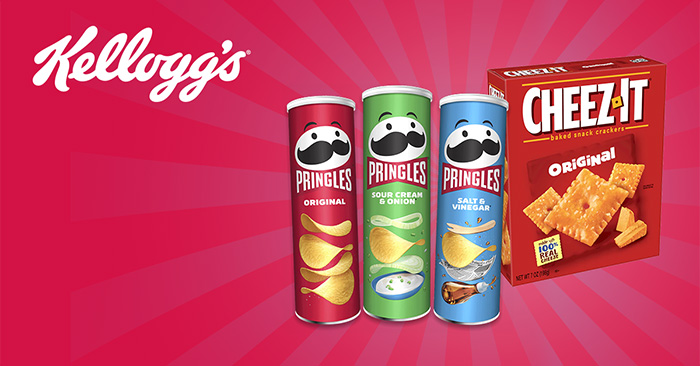Kellogg’s: Guidance Raised, Snack Sales Flourish

Success in the snack segment has encouraged the Kellogg Company to raise its full-year 2022 guidance in sales, profits and earnings per share during its third quarter earnings report Thursday morning.
The Battle-Creek, Michigan-based company reported $4.1 billion in organic net sales compared to $3.6 billion in the same period last year as the company’s North American cereal business continued to moderate after a challenging late 2021 impacted by a worker strike and a fire at a Pennsylvania production plant.
Kellogg’s Chairman and CEO Steve Cahillane said during the earnings call that he didn’t expect to be talking about 14% overall organic sales growth at this point in the year, calling the 18% increase in North American snack sales “pretty exceptional.”
“Our organization once again exhibited grit and creativity in navigating and executing through a global operating environment that showed little to no signs of easing,” he said.
Although the company boasted stronger than expected sales, operating profits were down 17.6% as the company continues to mitigate high costs associated with inflation and supply chain shortages as well as more investment in brand-building.
During Q3, cost of goods was $2.79 billion and other expenses (selling, general and administrative) were $785 million.
Cahillane said that as long as inflation continues to run “very hot” it will remain challenging for Kellogg’s to keep pricing in-line to cover input costs and overcome the bottlenecks and shortages that have plagued food companies during the pandemic. Yet, he remained cautiously optimistic.
“The price mix in North America was strong. The ability to cover costs was strong. The underlying brand performance was exceptionally strong. And so the outlook for North America is strong,” he said during the question and answer section of the call. “It’s been a terrific year.”
The food maker raised guidance across the board with organic net sales adjusted to 10% (prior guidance 7% to 8%), adjusted operating profit growth to 6% (previously 4% to 5%) and earnings per share up to 3% (previously 2%).
Despite experiencing challenges related to price elasticity and the impact of Russia’s war in Ukraine, added CFO Amit Banati, the cash flow and balance sheet are healthy.
Kellogg Europe’s operating profits were down -9% year-over-year, but the company’s other two international markets showed more promise with profits up 6% in Latin America and 14% in Asia-Middle East-Africa (AMEA). AMEA snack and noodle sales were up 42% and 24% respectively in Q3.
In June, the company announced its intention to split into three separate businesses (currently called Global Snacking Co., North America Cereal Co. and Plant Co.). Global Snacking will make up about 80% of the company’s net sales and prioritize the success of brands like Pringles, Cheez-Its and Pop-Tarts, all of which showed double digit sales growth in nearly all markets.
Kellogg’s executives reiterated that the company has been able to rebuild its U.S. cereal business back to October 2021 category share levels and is seeing demand accelerate following investment in marketing campaigns, seasonal product releases and new innovations like “just-add-water” cereal Insta Bowls.
Cahillane added that the company had also cut out a number of cereal SKUs which allowed it to consolidate its investment around its stronger performing brands.
The company’s plant-based business – representing only 2% of its total net sales – continues to struggle as diminishing consumer demand and a supply disruption at a co-manufacturer’s production facility has constrained capacity for Kellogg’s Morningstar Farms brand. The brand has seen sales drop out in 2021 and the first three quarters of 2022 as buy-rates have dropped down to pre-COVID levels with the category consolidating into the frozen aisle.
Kellogg’s leadership noted that although inflation continues to be a macroeconomic concern across its portfolio, the company has yet to see any impact of consumers trading down to private label brands.
“In fact, quite the opposite in some markets,” Cahillane said. “We tend to be affected less than discretionary consumer goods, travel, dining out and things of that nature.”

















